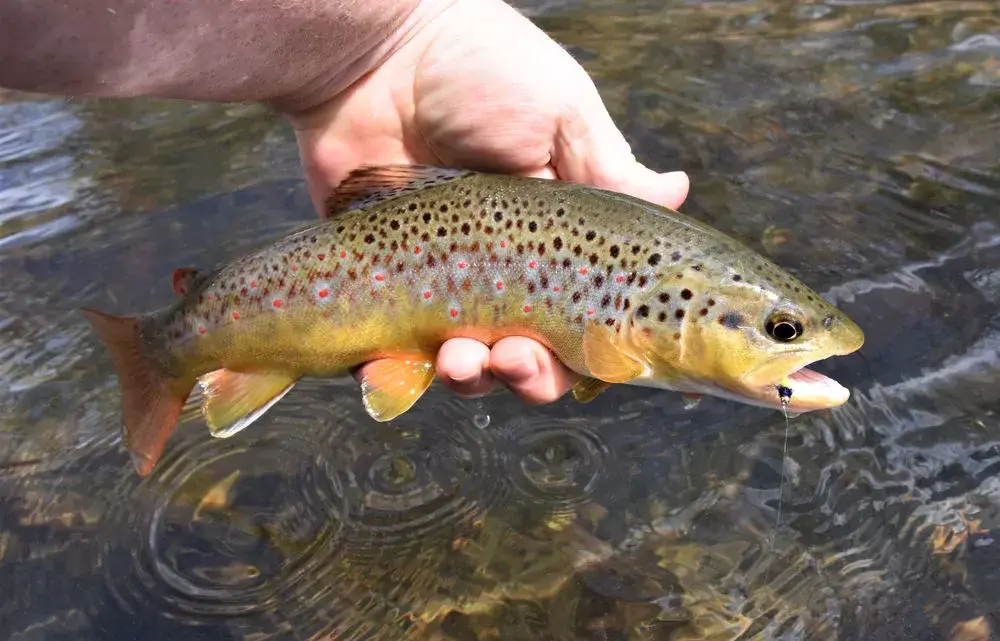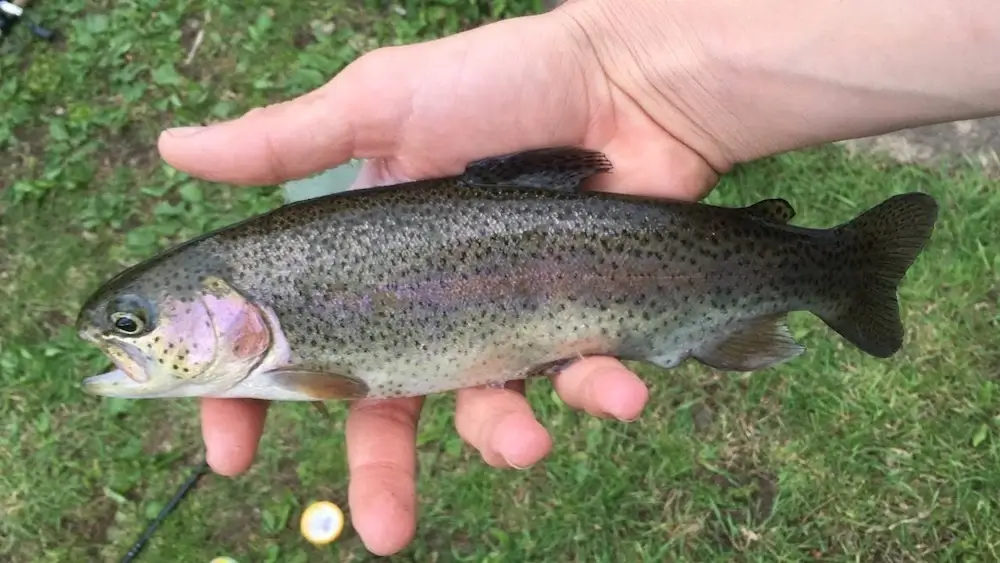Do you love spending a day out on the lake fishing? If so, you may be wondering how long do stocked trout live. In this blog post, we will answer that question for you and discuss some of the factors that affect their lifespan.
Stocked trout are raised in hatcheries by fish farmers and are released into lakes and rivers to provide anglers with a good fishing experience. So, how long do they typically live?
The lifespan of a stocked trout varies depending on the water temperature and how healthy they are when they are released. In general, though, trout can live for up to five years in the wild.
However, if the water is too cold or not getting enough food, their lifespan will be shorter. In addition, trout caught and released multiple times may not live as long as those caught and released only once.
So, how can you make sure that you catch the most significant and healthiest trout? One way is to look for signs of poor health, such as scales that are falling off, fin erosion, or open sores on the body.
You can also check the water temperature to make sure of the trout’s preferred range.
If you are looking to catch a big fish, your best bet may be to go fishing in the spring or fall when the water temperatures are more relaxed. However, remember that the weather can change quickly, so always be prepared for all conditions.
Why Do Trout Live Such a Short Time?

It’s a question that has puzzled anglers and biologists for years: how long do stocked trout live, and what factors determine how long they survive?
While there is no one answer to this question, researchers have identified several key factors that can affect the lifespan of a stocked trout.
The age of a trout at stocking is perhaps the most important factor in determining how long it will live. Young trout, who have not yet reached maturity, typically have a much shorter lifespan than older fish.
In addition, the environmental conditions in which trout are stocked can also play a role in how long they survive.
Trout that are stocked in colder water temperatures tend to live longer than those stocked in warmer water.
The quality of the food that trout are fed can also impact their lifespan. Trout that are fed a healthy diet of natural foods tend to live longer than those fed artificial diets.
Finally, how trout adapt to their new environment can also affect how long they survive.
Fish that become acclimated to their new surroundings typically have a longer lifespan than those that do not.
What Is the Average Lifespan of a Trout in a Lake?
Stocked trout can live for up to three years, but the average lifespan is about one year. Several factors affect how long a trout will live in a lake or pond, including water temperature, food availability, and predation.
Trout that are well-fed and living in cooler water tend to have longer lifespans than those that are malnourished and living in warmer water.
Predators such as bass, walleye, and pike can also shorten a trout’s lifespan by preying on them.
What Is the Largest Trout Ever Caught?
This is a difficult question to answer as so many variables go into trout size. However, the largest trout ever caught was likely in a river or stream, and it weighed in at around 32 pounds.
However, some large brown trout have been stocked in artificial lakes, and they can weigh over 50 pounds.
How Long Do Stocked Trout Live?

Many factors contribute to how long a trout will live, and it can vary depending on trout species.
- Brook Trout: These fish typically only live for around three years, although they can sometimes reach six years old.
- Brown Trout: These fish can live for up to ten years, but the average lifespan is around five years.
- Rainbow Trout: These fish usually have a lifespan of around four years, but they can sometimes reach eight years old.
Many different factors play into this, including the following:
- Size and Age: The larger the trout, the older it is likely to be.
- Habitat: Trout that live in clean, fast-moving water typically have a shorter lifespan than those that live in slower, more murky water.
- Diet: A healthy diet of insects and other small aquatic life will help to keep trout thriving. Conversely, a diet of mostly artificial food can shorten their lifespan.
- Disease: Trout can be susceptible to a variety of diseases, which can shorten their lifespan.
- Fishing Pressure: The amount of fishing pressure that a trout is exposed to can also affect how long it lives. If too many fish are caught, the population will eventually decline and the average lifespan of the trout in that area will decrease.
What Do Stocked Trout Consume?
Stocked trout eat a variety of things, depending on their location. For example, they may eat insects, crustaceans, and other tiny aquatic organisms. In some areas, they may also eat pellets or other artificial feed.
In general, stocked trout live for about two years. However, the lifespan of a stocked trout can be affected by several factors, including water temperature, food availability, and predation.
Will Trout Die If You Touch Them?
No, trout will not die if you touch them. They are hardy fish and can tolerate being handled by people. However, it is always best to handle them with care to avoid injuring them.
Is Salmon a Healthier Alternative Than Trout?
Salmon is a type of fish that belongs to the trout family. Some people believe that salmon is healthier than trout, but no scientific evidence supports this claim.
Both salmon and trout are healthy, nutrient-rich fish high in omega fatty acids. The main difference between these two types of fish is their flavor.
Salmon has a more robust flavor than trout, which some people prefer, and others do not. In terms of lifespan, salmon typically live longer than trout.
This is because salmon migrate to different parts of the ocean to find cleaner water and more food sources. Trout tend to stay in one spot their entire lives, leading to a shorter lifespan.
Conclusion
The lifespan of a trout can vary depending on various factors, such as its size, age, and habitat. However, most trout tend to have a relatively short lifespan compared to other fish species.
Young trout, who have not yet reached maturity, typically have a much shorter lifespan than older fish.

